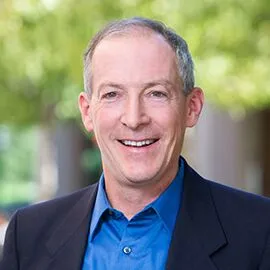Lawrence M. Wein

Bio
Professor Wein received his PhD in Operations Research from Stanford in 1988 and has taught the core MBA course in operations management throughout his entire career, both at MIT’s Sloan School of Management from 1988 to 2002, where he was the DEC Leaders for Manufacturing Professor of Management Science, and at Stanford during 2003-2019, where he is currently the Jeffrey S. Skoll Professor; Professor of Management Science and a Senior Associate Dean of Academic Affairs. He also is a Senior Fellow at Stanford’s Center for International Security and Cooperation.
His main research interests are in operations management and public health. In both areas, he has published widely and impacted practice. His workload regulating release policy was widely adopted throughout the semiconductor industry. His HIV work on drug-switching policies led to a successful multicenter clinical trial. In the field of homeland security, his smallpox work influenced the U.S. Government’s post-attack vaccination policy; his anthrax work led to nationwide plans to use postal workers to distribute antibiotics after a large attack; his botulinum toxin work was influential in intensifying the heat pasteurization process for milk, and his testimony before a congressional committee on his biometric analysis of the US-VISIT Program was instrumental in the switch from a two-finger to a ten-finger system. His primary current interest is on solving violent crimes, with a focus on ballistic imaging, sexual assault kits, and forensic investigative genetic genealogy. He has won many research awards and was Editor-in-Chief of Operations Research from 2000 to 2005.
He is a member of the National Academy of Engineering.
Academic Degrees
- PhD, Stanford University, 1988
- MS, Stanford University, 1985
- MS, Stanford University, 1980
- BS, Cornell University, 1979
Academic Appointments
- Senior Fellow (by courtesy), Freeman-Institute for International Studies, 2003-present
- Lacob Family Faculty Fellow, 2014–15
- Stanford GSB Trust Faculty Fellow, 2013–14
- Winnick Family Faculty Fellow, 2009–10
- Paul E. Holden Professor of Management Science, 2003–10
- Spence Faculty Fellow, 2005–06
- At Stanford University since 2002
- Professor, Sloan School of Management, M.I.T., 1988–2001
Awards and Honors
- Davis Award, 2025
- Noteworthy Article, Journal of Forensic Sciences, 2022
- Noteworthy Article, Journal of Forensic Sciences, 2018
- Laudatio, Production and Operations Management, 2016
- Koopman Prize, INFORMS, 2002
- Erlang Prize, INFORMS, 1993
Service to the Profession
- Senior Editor: Manufacturing & Service Operations Management, 1998-2003
Professional Experience
- Senior Operations Research Analyst, W.R. Grace and Company, 1981–82